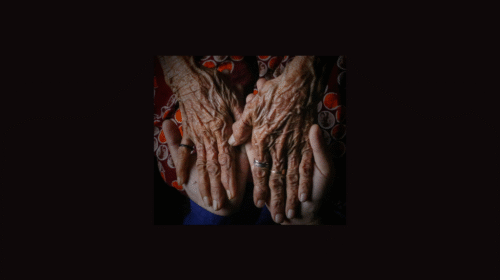Blog

Toward a Care-Centered Economy: The Road to Gender-Inclusive Growth
Unpaid care work is the invisible engine that sustains the economy, yet it remains systematically undervalued in mainstream analysis and public policy. When states invest in human capabilities, women’s labor force participation strengthens—rather than strains—economic growth. To build a more inclusive economy, we must recognize, support, and more equitably share care work—work that makes all other work possible.

The Unseen Price: Gender and the Crisis of Unpaid Care in Southern Europe
In Southern European countries, the welfare system has historically relied on one silent pillar: the family. However, this once-resilient model is now an unsustainable trap, threatening gender equity and jeopardizing social sustainability. It is time to re-evaluate who truly pays the price of care.

Beyond Choice: Why Economics Needs Reproductive Justice
What if the concept of “choice” in reproductive decisions is an economic illusion? The Reproductive Justice framework, created by women of color, argues that true autonomy is shaped by systemic inequality. It’s time for economics to adopt this powerful lens.

Back to the Future? Women’s Work and Care in Argentina
In Argentina, the Milei government’s austerity agenda has dismantled the fragile infrastructures that sustain everyday life. Cuts to care programs and gender institutions have shifted social reproduction back onto women’s unpaid labor. The article traces how this erosion of care undermines both equality and democracy.

Is it Love and Unpaid Work? Variations on an Emerging Profession in the Popular Care Economy
Argentina’s popular care economy reopens questions about knowledge and labor “from below”, as well as their economic, political, and societal valorization in processes of professionalization.

Tejiendo desbordes para continuar cuidando: el caso de los comedores populares de Lima, Perú
Las mujeres de los comedores populares generan diversas formas de agencia conscientes o no, feministas explícitas o no, para asegurar directa e indirectamente el cuidado. Se trata de un ejercicio de desborde constante del Estado desde lo cotidiano y, a través de relaciones de cooperación y/o confrontación con el Estado.

Dispossession, World Ecology, and Care: A View from Kenya
Capitalism remakes relations among humans and between humans and more-than-human natures. This process has fostered a minimalist, productivist notion of care, commodifying or eroding relations that resist accumulation. Focusing on colonial Kenya, I explore how ecological crises and commodification disrupted interspecies patterns of care central to pastoral Maasai lifeways.

Governance of “Care” as an Urban Resource?
Care-full Municipalism offers a theoretical and policy vision for rethinking urban governance in ways that prioritize life-making over profit-making, sustainability over extraction, and collective responsibility over individual burdens.

Surviving the Future: Practices of Care in A’a Teyze’s Garden
The labors of Afro-Turks with the natural world that lie outside of purely productivist grammars of relating within which they are entangled “spatialize acts of survival” that are disruptive enough as to wage war against domination.

The Courage and the Scourge of Caring: Coal Miners’ Earthquake Search and Rescue Work
The Soma coal miners translated their underground skills into life-saving care after the February 6, 2023, earthquakes, acting swiftly where the state failed. Using traditional mining techniques, they reinforced the rubble, creating moments of survival through expertise, solidarity, and sheer physical courage. Their intervention exposes how care under capitalism remains reactive—yet, when organized, it holds the potential to resist collapse and build a different future.

Destruction as Care
Destruction as care means imagining more-than-human flourishing. The experience of Galician common lands challenges the idea that care only sustains life. Acts of destruction, like cutting trees, can also be care, questioning whose life is being reproduced and why. More-than-human relationalities in land management expand ideas of ecological reciprocity.

Caring in, for, and of the Venetian Lagoon
Venice and its lagoon are an excellent showcase and laboratory for how social and environmental intertwine. Care writing offers many mature theoretical perspectives that combine the analysis of social and environmental systems and call for a joint study of human and nonhuman care. The time is ripe for the next step: joint empirical research on these topics, emphasizing the need for immediate action to address global care and environmental crises.